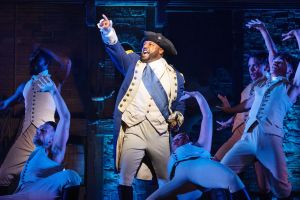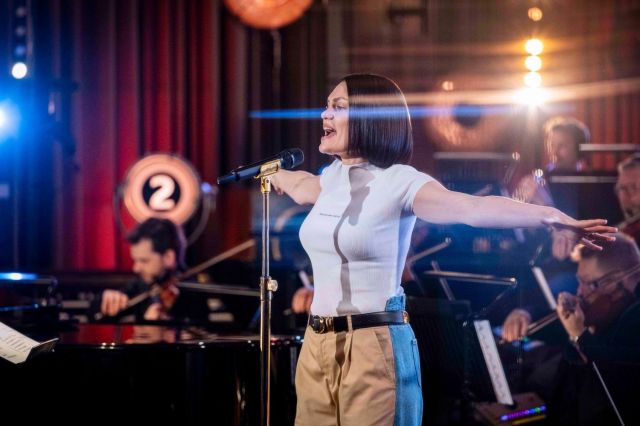Brief Encounter With…David Thacker
Following the departure of Mark Babych in June of this year, internationally renowned stage and television director David Thacker has just commenced his appointment as Artistic Director of the Octagon Theatre, Bolton. Having announced an ambitious and varied main house season for 2009-2010, David has also programmed a series of studio performances and interactive events for audiences in the accompanying “Bolt-On” calendar. This season will see David helm productions of All My Sons, Ghosts and A Midsummer Night’s Dream, amongst others.
Having run the Old Vic in London for nearly 10 years, David has also directed work at the National, and the RSC (winning an Olivier award along the way) as well as BAFTA award-winning dramas for television, working alongside a plethora of major acting names. He is also noted for his celebrated working relationship with Arthur Miller. We spoke to him as he was about to embark on rehearsals for All My Sons and Ghosts.
Congratulations on the new job, and announcing the new season. What made you decide to take up the post?
This opportunity at the Octagon came completely out of left field. I’d always liked the Octagon, so I thought I’d check it out. It’s a perfect auditorium for me – the size, the intimacy. But most importantly, it’s a community I want to work in. I want to work in a town, an area, where theatre can have a major impact on peoples’ lives. Because I’m so committed to the season ticket initiative, and can show people at a glance with the programming what this theatre is about, and I’m so thrilled by the response to that. We’ve had over 1100 season ticket sales. In the 40th Anniversary season they sold 1200, the most successful number ever. So this year might mean that by the time an audience member walks through the door, we’ve sold more tickets than ever in the history of the Octagon Theatre.
Do you think that the unusual move of announcing the entire season in one go has helped generate interest?
I hope it’s a statement of intent, plus Patrick Stewart’s endorsement makes a bit of a difference. What he’s written is so supportive and specific, so that has helped. There may be a sense of intrigue – it’s not for me to say – that I’ve started working here. People might think, “Maybe something’s happening there, let’s give it a go.” It’s not a radical change, not like the past has been thrown out; it’s a development of the kind of work that Mark Babych was doing. Plus, nine plays for £88 is good value!
You are renowned for your professional relationship with Arthur Miller. How might this be reflected in this and other seasons?
The rights to All My Sons weren’t available, so I spoke to the New York agent and asked them to ask the Arthur Miller estate. The estate leant on the American producers – who owns the world rights – and they said they would release rights for this production, which was a useful precedent. Because, on the back of that, the Curve in Leicester got the rights as well.
I’d be pretty certain there will always be a major American play as long as I’m here, whether it’s a Miller or not. Maybe a Tennessee Williams, or Eugene O’Neill. There will always be a Shakespeare, a high quality musical, there will always be new writing. These will be the cornerstones around which the season will be built. Then, I’ll see how this goes! If I bore the pants of people with what we do, then I’ll look again, because it’s an interactive experience. The only way that I can do this job is to say, “This is what I believe in, this is who I am, and we don’t want to do anything that I think isn’t a wonderful play.” We should be taking risks with world premieres, and (opening production) Mixed Up North is exactly what we should be doing.
Talking of Mixed Up North, this was considered controversial in some quarters…
I think it’s perfectly appropriate that Mixed Up North was somewhat controversial – not that we’re putting it on to be controversial – because it’s a hopeful look at how young people try to deal with their problems in a racially divided community. It’s an inspiration to us all. We think the purpose of theatre is to make people look at the world in which they live, and to look at their own lives. But it’s also to entertain, to inspire, to move. Theatre enriches peoples’ lives. Nine times a year, they can come here and something will happen which will enrich their lives – like belonging to a really good book club! And with the investigative strand of work in the Bolt-On season, we can have people look more deeply at it.
Tell us about why you decided to start your directing career here with All My Sons and Ghosts?
I was very keen to do the two plays together for a number of reasons. First of all, they both deal with very similar issues. Both are plays in which there is an apparently respectful society, or an apparently respectful family. But lurking under the respectful veneer is corruption, lies, and deceit. Both plays are dealing with denial and the responsibility we have to face the truth. To face the truth in our own lives, and to face the truth in other people.
More significantly, Arthur Miller, when he wrote All My Sons had had a bit of failure on his previous play, The Man Who Had All The Luck. He reflected long and hard on whether to write novels – in fact he wrote a very successful novel after that – and decided to write a play with a very strong narrative that was almost like an Ibsen play. He was very heavily influenced by Ibsen, and impressed by Ibsen’s work. And so he took Ibsen as a kind of model. And Ghosts in particular influenced him.
So how are the productions going to develop the thematic links between the two plays?
To emphasise this, we have the same set for both plays; a non-naturalistic set. And the four characters at the heart of that thematic connection are played by the same actors, and that will further bring out the thematic connections.
Leading on to that, I have developed, over a number of years, my own personal attitude to plays in translation. Because, one of the difficulties when you’re directing a play in translation is that you can never be utterly certain what the original text would have been, unless you can speak the original language utterly fluently. It’s almost as if you’re directing a play through a smokescreen! Most translations aren’t very good, and no printed translation would be good enough. So, what I’ve developed is a way in which the actors work from a number of translations, and a number of improvisations and discussions, to arrive at an English version in rehearsal which we then send to our translator, Erik Skuggevik, and he then analyses it in great detail, and in essence, marks it. To check it for its accuracy, its sensitivity, its phraseology. Then he comes to our rehearsals and we have a week in which he is in the rehearsal room with us, and in great detail we analyse the translation, so we end up with probably the best translation there’s ever been of Ghosts.
That’s a very bold statement!
I can say that with some certainty, because when I did A Doll’s House for the BBC, using the exact same process, the translation was analysed by a Norwegian professor who analysed 15 translations of the play, and decided that this was the best translation there had ever been, or that he’d ever come across. Which isn’t surprising, because if you sat in a room with us in rehearsal, you’d be aware of the extent to which all these translations have problems with them.
Lest you think that this is a very dry academic thing, the other reason is that this will lead to the best acting the cast are capable of doing, because they will understand this text inside out, they’ll understand the emotional life of it, and they’ll have made their own choices about the language, which means they’ll completely inhabit the text.
Finally, what do you think of the theatre scene in the North West? And how does the Octagon fit into this?It’s only fair to talk about the work that I’ve seen, and what I’ve seen, I’ve really enjoyed. I haven’t been to the Oldham Coliseum yet. I went to the New Vic (Stoke) to see their show with the circus performers, and I really enjoyed that, I thought it was adventurous. The last thing I saw at the Royal Exchange was A Conversation, which I thought was great. Also, Waiting For Godot at the Library Theatre I thought was great, too. At the Octagon, we’ve developed two key relationships. One is with Northwest Playwrights, and the other is with Actors Centre North. I’ve already run three workshops with Actors Centre North, which they facilitate and organise who the actors are, and I spend a day working with them on a workshop. This isn’t just for casting processes; it’s to allow the directors working here to explore the plays with actors. We’re also going to invite a number of directors to run their own workshops here with actors. I see the Octagon as part of the infrastructure of northwest theatre. It’s a very vibrant area and I am very happy to be part of that family of theatre.
David Thacker was speaking to Matthew Nichols.
All My Sons runs from tonight until 24th October at the Octagon. For more information, please visit their website.












